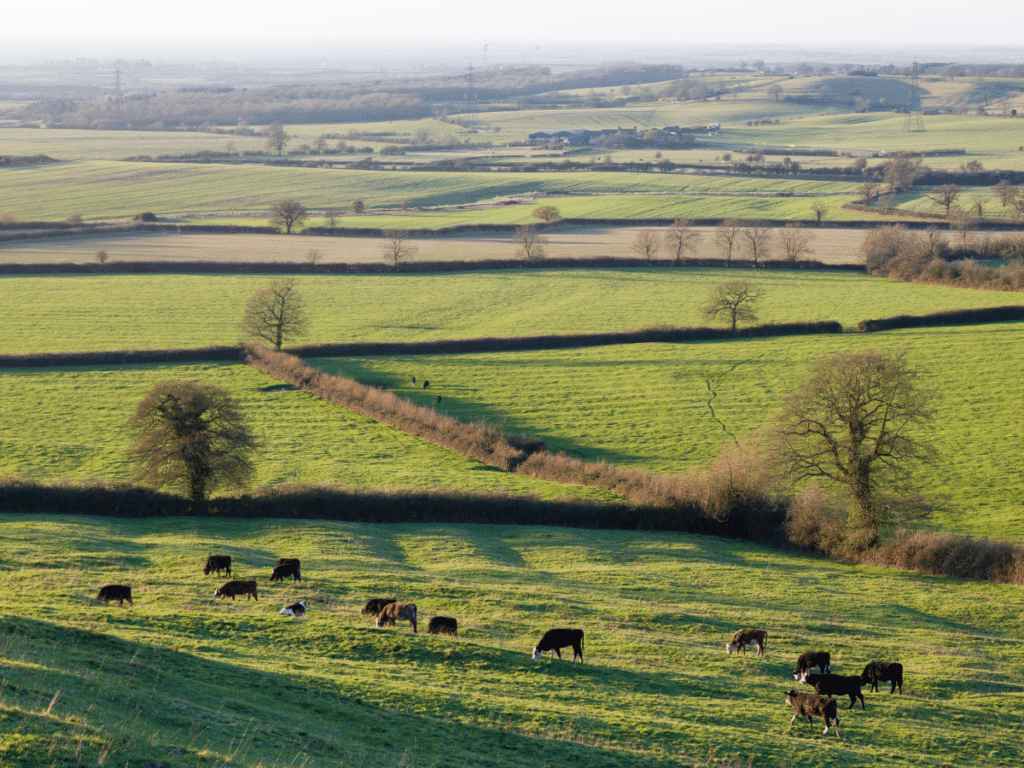Please note, the following updates come directly from Defra, and are not written by Land App.
This month, Defra have made the following announcements:
Future of hedgerow protections
Regulations to continue to protect English hedgerows will be brought into law.
In June last year, Defra launched a consultation on how hedgerows should be protected in England. By the time the consultation closed in September, almost 9,000 of respondents shared their views. This substantial response again highlights how much hedgerows are valued by all, including farmers and land managers.
Consultation responses
There was overwhelming agreement that hedgerows are valuable assets for wildlife and the environment.
Responses to the consultation clearly supported protections. In total 96% of responses agreed with the proposal to maintain a buffer strip and 98% agreed with the proposal to maintain a cutting ban period. Farmers were firmly supportive, with 82% agreeing to a buffer strip and 85% to a cutting ban period.
Hedgerows regulation and protections
The proposed regulations will replicate the approach already familiar to most farmers from the previous cross compliance rules.
As before, they will require a 2-metre buffer strip measured from the centre of the hedge, where no cultivation or application of pesticides or fertilisers must take place. This is to prevent harm to the structure and health of the hedge. The new regulations will also follow the cross compliance approach and ban the cutting of hedges between 1 March and 31 August, protecting nesting birds during that period.
Defra’s approach to regulation
Whilst the rules themselves will be familiar to farmers, the approach to enforcement of the proposed new regulation will be different, with a focus on being fair and proportionate.
The new requirements will be introduced as soon as Parliamentary time allows and will be regulated by the Rural Payments Agency (RPA) who will provide advice and guidance to help farmers comply with the regulations. The enforcement approach will be consulted on and will be talking to farmers and environmental organisations alongside a formal consulting process.
Read a summary of the responses to last year’s consultation on hedgerow protection, together with the government’s responses and proposed next steps on GOV.UK. This includes proposed exemptions to the requirements.
Credit: Peter O’Connor
Productivity and Slurry Applications now open
Funding is now available for farming equipment and technology for kit that will help you improve productivity and slurry management through the Farming Equipment and Technology Fund.
The window to apply will close at midday on 17 April 2024.
You can apply for one grant from each of the 3 themes of productivity, slurry management and animal health and welfare.
Farmers, foresters, growers and contractors to those sectors can apply.
The Rural Payments Agency (RPA) will allocate funding after all applications have been received and scored. If you are successful in your application, you could receive all or some of the funding that you apply for.
Successful applicants will receive a grant of:
- a minimum of £1,000 and a maximum of £50,000 towards productivity items
- a minimum of £1,000 and a maximum of £50,000 towards slurry items
- a minimum of £1,000 and a maximum of £25,000 towards animal health and welfare items
We will pay a percentage of the cost depending on the item. This percentage is an increase on last year.
This funding will go towards either:
- if an item costs you the same or more than the expected average cost in the item lists, we will pay the average cost.
- if an item costs you less than the expected average cost in the item list, we will pay the actual item cost
For further information on the grants and items included please read the grant guidance on GOV.UK.
Our team will host a webinar covering the grants available on 12 March 2024. You will be able to put your questions to policy leads during the session. Register to attend the webinar.
Grants for animal health and welfare items will be available later this month. We’ll let you know when you can apply.
Credit: Steve Knight
Share your views: Government consulting on targeted culling with increased use of badger vaccination
On Thursday 14 March, Defra launched a consultation setting out proposals for the next phase of badger TB control policy, which are part of delivering the next phase of the Government’s bovine TB eradication strategy.
While the majority of our disease control measures focus on cattle, the 5-week consultation proposes retaining badger culling as an option in targeted parts only of the High-Risk Area and Edge Area, where there are high levels of infection in cattle, and where evidence suggests badgers are part of the problem in the spread of disease to these herds.
Culling would continue in these targeted areas until the disease situation has been deemed to have improved, following an annual review by the UK’s Chief Veterinary Officer. At this point, badger vaccination would be used to ensure the results achieved through culling are maintained. This sets out a clear exit strategy to non-lethal control preventing the return of disease in these areas.
The proposal builds on our investment in wider scale badger vaccination, which is now much more of a reality, with more farms involved in vaccination programmes than ever before.
The consultation also seeks views on proposals to reduce the administrative burden placed on farming groups delivering badger culling and vaccination, as well as options for publishing additional information about animal and herd level bTB risk on the ibTB interactive mapping tool, to help those purchasing cattle to better manage risks when sourcing new stock.
Learn more and share your views here before the consultation closes on Monday 22 April

